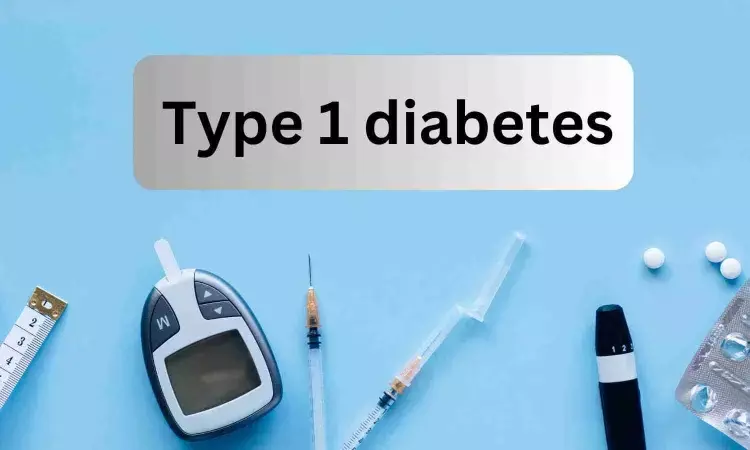- Home
- Medical news & Guidelines
- Anesthesiology
- Cardiology and CTVS
- Critical Care
- Dentistry
- Dermatology
- Diabetes and Endocrinology
- ENT
- Gastroenterology
- Medicine
- Nephrology
- Neurology
- Obstretics-Gynaecology
- Oncology
- Ophthalmology
- Orthopaedics
- Pediatrics-Neonatology
- Psychiatry
- Pulmonology
- Radiology
- Surgery
- Urology
- Laboratory Medicine
- Diet
- Nursing
- Paramedical
- Physiotherapy
- Health news
- Fact Check
- Bone Health Fact Check
- Brain Health Fact Check
- Cancer Related Fact Check
- Child Care Fact Check
- Dental and oral health fact check
- Diabetes and metabolic health fact check
- Diet and Nutrition Fact Check
- Eye and ENT Care Fact Check
- Fitness fact check
- Gut health fact check
- Heart health fact check
- Kidney health fact check
- Medical education fact check
- Men's health fact check
- Respiratory fact check
- Skin and hair care fact check
- Vaccine and Immunization fact check
- Women's health fact check
- AYUSH
- State News
- Andaman and Nicobar Islands
- Andhra Pradesh
- Arunachal Pradesh
- Assam
- Bihar
- Chandigarh
- Chattisgarh
- Dadra and Nagar Haveli
- Daman and Diu
- Delhi
- Goa
- Gujarat
- Haryana
- Himachal Pradesh
- Jammu & Kashmir
- Jharkhand
- Karnataka
- Kerala
- Ladakh
- Lakshadweep
- Madhya Pradesh
- Maharashtra
- Manipur
- Meghalaya
- Mizoram
- Nagaland
- Odisha
- Puducherry
- Punjab
- Rajasthan
- Sikkim
- Tamil Nadu
- Telangana
- Tripura
- Uttar Pradesh
- Uttrakhand
- West Bengal
- Medical Education
- Industry
Study suggests protective effect of ergocalciferol on beta cells in new-onset type 1 diabetes

USA: A secondary analysis of a randomized clinical trial (RCT) published as a research letter in JAMA Network Open has shed light on the effect of ergocalciferol, an inactivated vitamin D analog, on β-cell function in new-onset type 1 diabetes (T1D).
The researchers showed that high-dose ergocalciferol, also known as vitamin D2, may help preserve β-cell function in kids with new-onset T1D and prolong the partial remission phase.
In the study, ergocalciferol significantly reduced the ratio of fasting proinsulin to C-peptide (PI: C) and slowed the decrease in the percent change from baseline in the area under the curve (%∆AUC) of C-peptide among youths with type 1 diabetes.
The results suggest a protective action of ergocalciferol on β cells and possible mechanisms of action to prolong the partial remission (PR) phase of T1D. Ergocalciferol’s ∆ effect size for β-cell protection (15%) is comparable to that of verapamil, imatinib, and other agents (15%-19.4%). Thus, vitamin D may be combined with other treatments (eg, baricitinib and teplizumab) to prolong PR.
About 30% to 50% residual β-cell function may remain at the time of T1D diagnosis, and this may persist for months or years. A prolonged partial remission phase of T1D leads to decreased long-term complications and improved glycemic control. Previous studies have shown a significant decrease with ergocalciferol, in circulating tumor necrosis factor (TNF)-α and temporal trends in both hemoglobin A1c (HbA1c) and insulin dose–adjusted A1c (IDAA1c), a marker of PR, compared with placebo.
Benjamin Udoka Nwosu, Cohen Children’s Medical Center, New Hyde Park, New York, and colleagues report the effect size of high-dose ergocalciferol (50 000 IU/wk for two months, then biweekly for ten months) versus placebo on β-cell function, denoted by the ratio of fasting proinsulin to C-peptide and the percent change from baseline in the area under the curve of C-peptide.
For this purpose, the researchers conducted a post hoc secondary analysis of a double-blind, single-center, placebo-controlled, parallel-group randomized clinical trial of ergocalciferol vs placebo in youths (aged 10-21 years) with newly diagnosed T1D. They obtained written informed consent from adults and parents and assent from youths (aged <18 years). The study followed the CONSORT reporting guideline.
Exclusion and inclusion criteria included fasting C-peptide (>0.1 nmol/L) or stimulated C-peptide (≥0.2 nmol/L) and a positive diabetes-associated autoantibody profile. Participants entered a run-in phase of 1 to 2 months, maintained a treat-to-target insulin regimen, and were randomized to ergocalciferol or placebo. Participants completed mixed-meal tolerance tests to estimate fasting glucose, C-peptide, and proinsulin (normal range, 3.6-22 pmol/L) at 0, 3, 6, 9, and 12 months.
Of 48 youths with type 1 diabetes eligible for the 12-month trial, 36 were randomized to ergocalciferol or placebo. Their mean age was 13.5 years.
Based on the analysis, the researchers reported the following findings:
- Ergocalciferol significantly decreased fasting PI: C vs placebo (mean [SE], −0.0009 versus 0.0011) for the monthly overall difference in trends.
- · The mean decrease in %∆AUC C-peptide was similar for both groups in the first three months (−10.9 versus −8.2) but subsequently decreased more slowly with ergocalciferol vs placebo (−28.4 versus −41.5), with a significant reduction in monthly overall temporal trends (mean [SE], −2.8% vs −4.7 %).
"Although this RCT was limited by its single-center setting, the results suggest a protective action of ergocalciferol on β cells and possible mechanisms of action to prolong PR," the researchers concluded.
Reference:
Nwosu BU, Parajuli S, Sharma RB, Lee AF. Effect of Ergocalciferol on β-Cell Function in New-Onset Type 1 Diabetes: A Secondary Analysis of a Randomized Clinical Trial. JAMA Netw Open. 2024;7(3):e241155. doi:10.1001/jamanetworkopen.2024.1155
Dr Kamal Kant Kohli-MBBS, DTCD- a chest specialist with more than 30 years of practice and a flair for writing clinical articles, Dr Kamal Kant Kohli joined Medical Dialogues as a Chief Editor of Medical News. Besides writing articles, as an editor, he proofreads and verifies all the medical content published on Medical Dialogues including those coming from journals, studies,medical conferences,guidelines etc. Email: drkohli@medicaldialogues.in. Contact no. 011-43720751


